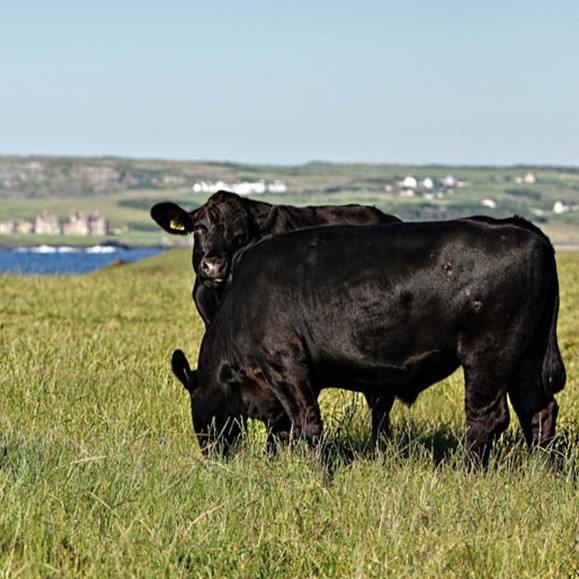
Why Irish Beef is so special
The grass really is greener over on the Emerald Isle. Ireland’s mild, temperate climate, plentiful rainfall and rich soils lead to lush grasslands full of nutrients, natural herbs and clover, creating the ideal environment for rearing cattle.
99% of Irish farms are family owned and run, passed down from generation to generation as is the craft, love and dedication to livestock farming. These careful and meticulous farming practices are at the heart of Ireland’s Sustainable Beef Assurance Scheme, which ensures the highest standards in animal welfare, traceability and environmental care.
So, by serving Irish beef on your menu, you can be confident in the knowledge that you have a tender, sustainable, delicious tasting, quality product every time.
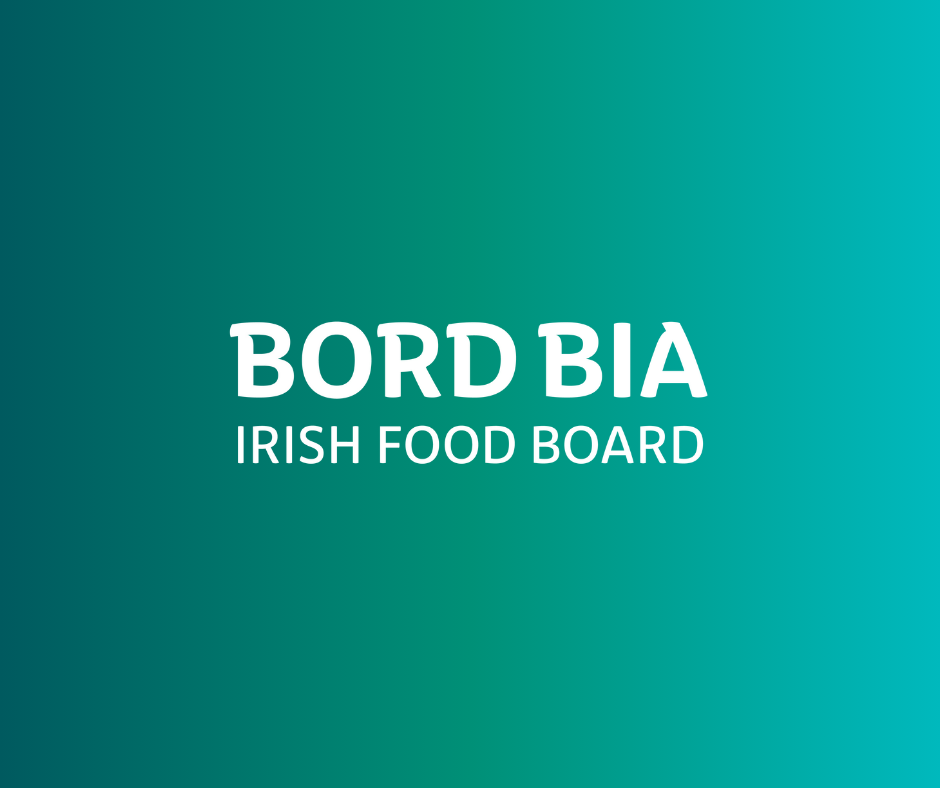
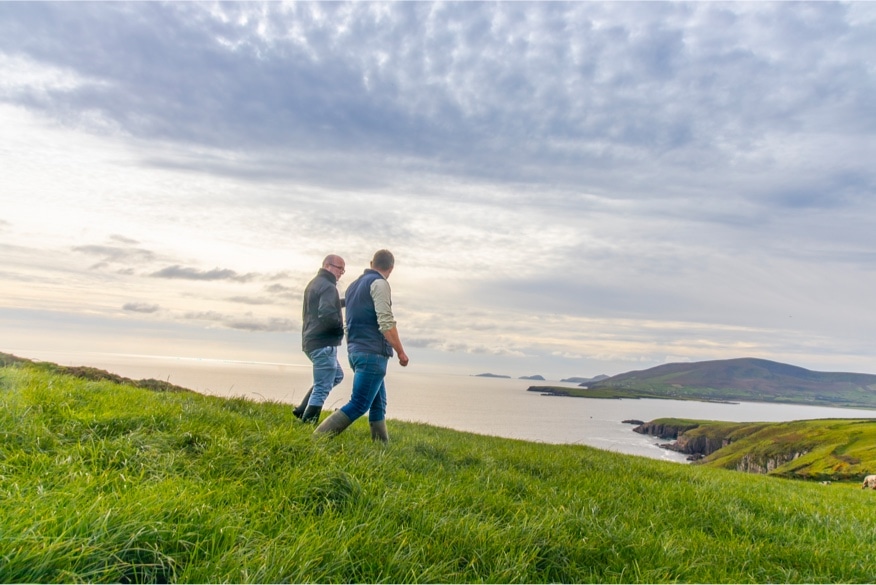
About Bord Bia
Bord Bia, also known as the Irish Food Board, is an Irish semi-state agency. Bord Bia’s role is to market and promote Irish food, drink and horticulture to customers worldwide on the basis of sustainability, traceability and quality. Headquartered in Dublin, Bord Bia also has sixteen global offices in locations such as London, Paris, New York, Singapore and Shanghai.
Customers around the globe recognize that Irish food and drink is world-class; that it is high quality, distinctive, and made by a diverse range of creative producers from a unique and fortuitous island location. Bord Bia’s purpose is to bring Ireland’s outstanding food, drink and horticulture to the world, thus enabling growth and sustainability of producers.
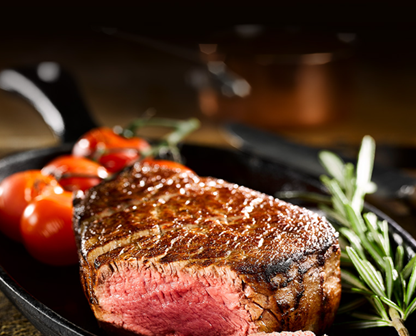
About Dawn Meats
Dawn Meats is a family-owned meat processor established in Waterford, Ireland in 1980. With deep roots in farming and a strong bond with over 40,000 Irish farmers, the company has grown into one of Europe’s leading suppliers to supermarkets, food service, and manufacturing businesses. Operating across Ireland, the UK and continental Europe, Dawn Meats serves customers in over 50 countries, processing large volumes of cattle and sheep annually—yet still committed to traceability and quality at every step.
Dawn Meats believes in doing more than just producing meat — its purpose is to combine consistency and quality with sustainability. Their vision emphasises innovation in processes, long-term partnerships with customers and farmers alike, people development, and responsible environmental stewardship. They strive to meet consumer expectations not just by delivering safe, premium products, but by maintaining a supply chain that supports rural communities, health, nature’s ecosystems and ethical practices.
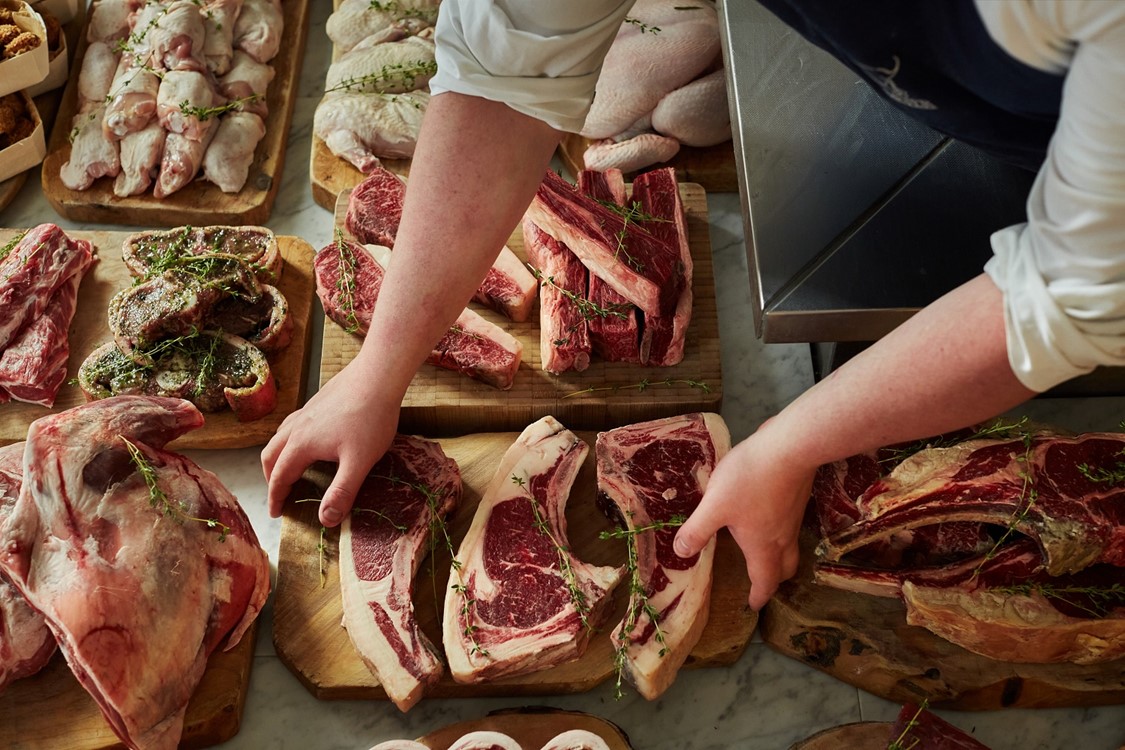
About HG Walter
HG Walter is an independent family-run butcher committed to providing every professional chef and home cook with an exceptional product and service to create exceptional food. Established in 1972 by Peter Heanen, it has become one of the UK’s most respected butchers, supplying some of the country’s best chefs and restaurants. HG Walter shares the importance of eating quality meat while supporting supply chains and sustainable farming.
HG Walter has long supported farms that adopt sustainable methods, working in harmony with nature, fostering biodiverse environments, and rearing heritage breeds. The durability of native breeds against the UK’s elements ensures they can live a healthy free-range life, devoid of antibiotics, grazing and foraging naturally on the land they have evolved with.
By buying whole carcasses and utilising every part of the animal, HG Walter makes all of its sausages, bacon, burgers, pies, and stock in-house. This practice ensures minimal food waste and avoids carcass imbalance, while the range of their customer base ensures that every part of the animal gets used. Acting as a firm advocate of nose-to-tail eating, HG Walter continues to encourage the adoption of offal into consumers’ diets.
‘At HG Walter, we’ve been proud to source Irish beef over the years. Ireland’s lush, green pastures provide the perfect environment for raising cattle, resulting in beef that is rich in flavour and has a fantastic texture. The quality and consistency of Irish beef are crucial in supplying our chefs and restaurants, who demand the best in their kitchen.’ - Adam Heanen, Managing Director of HG Walter

